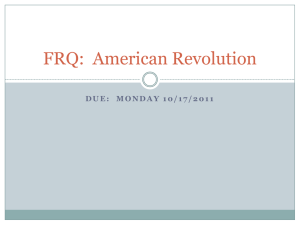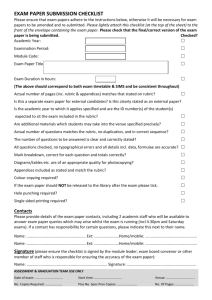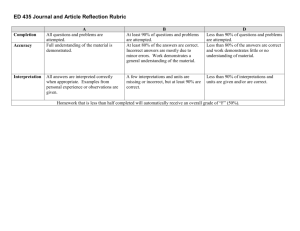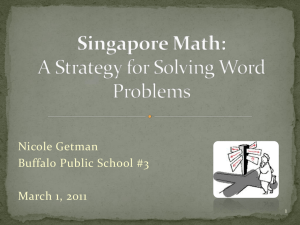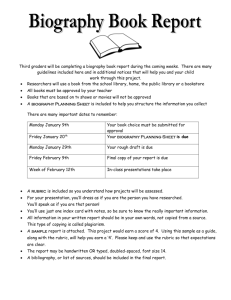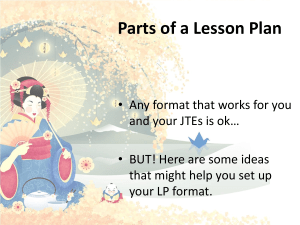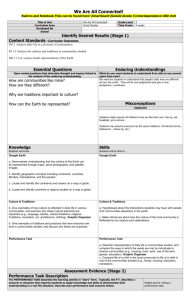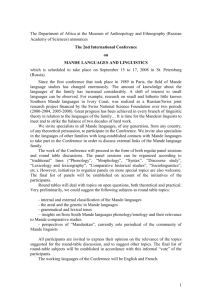African_Studies_Project_Unit_3
advertisement
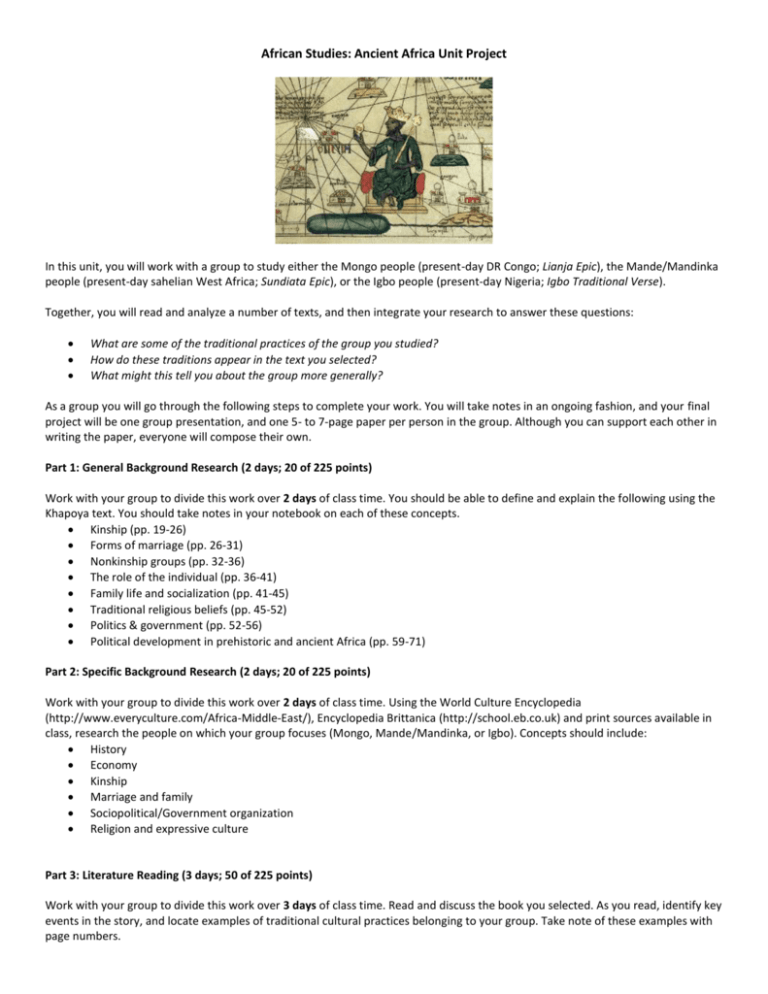
African Studies: Ancient Africa Unit Project In this unit, you will work with a group to study either the Mongo people (present-day DR Congo; Lianja Epic), the Mande/Mandinka people (present-day sahelian West Africa; Sundiata Epic), or the Igbo people (present-day Nigeria; Igbo Traditional Verse). Together, you will read and analyze a number of texts, and then integrate your research to answer these questions: What are some of the traditional practices of the group you studied? How do these traditions appear in the text you selected? What might this tell you about the group more generally? As a group you will go through the following steps to complete your work. You will take notes in an ongoing fashion, and your final project will be one group presentation, and one 5- to 7-page paper per person in the group. Although you can support each other in writing the paper, everyone will compose their own. Part 1: General Background Research (2 days; 20 of 225 points) Work with your group to divide this work over 2 days of class time. You should be able to define and explain the following using the Khapoya text. You should take notes in your notebook on each of these concepts. Kinship (pp. 19-26) Forms of marriage (pp. 26-31) Nonkinship groups (pp. 32-36) The role of the individual (pp. 36-41) Family life and socialization (pp. 41-45) Traditional religious beliefs (pp. 45-52) Politics & government (pp. 52-56) Political development in prehistoric and ancient Africa (pp. 59-71) Part 2: Specific Background Research (2 days; 20 of 225 points) Work with your group to divide this work over 2 days of class time. Using the World Culture Encyclopedia (http://www.everyculture.com/Africa-Middle-East/), Encyclopedia Brittanica (http://school.eb.co.uk) and print sources available in class, research the people on which your group focuses (Mongo, Mande/Mandinka, or Igbo). Concepts should include: History Economy Kinship Marriage and family Sociopolitical/Government organization Religion and expressive culture Part 3: Literature Reading (3 days; 50 of 225 points) Work with your group to divide this work over 3 days of class time. Read and discuss the book you selected. As you read, identify key events in the story, and locate examples of traditional cultural practices belonging to your group. Take note of these examples with page numbers. Part 4: Presentation (3 days; 60 of 225 points) Work with your group to create a 10-minute presentation that answers the essential question: What are some of the traditional practices of the group you studied? How do these traditions appear in the text you selected? What might this tell you about the group more generally? Your presentation should include: Overview of the people you studied Overview of the book you read Summary of key traditional practices of this group Examples of the practices in the text Conclusions you’ve drawn about the group from your study of these traditions Part 5: Essay (4 days; 80 of 225 points) Individually, you will compose a 5- to 7-page, double-spaced essay that summarizes your learning, including: Overview of the people you studied Overview of the book you read Summary of key traditional practices of this group Examples of the practices in the text Conclusions you’ve drawn about the group from your study of these traditions Your paper should adhere to all MLA formatting rules. Presentation date: _________________ Essay due: __________________ Name: _________________________________________________________________ Part Date Due Scoring Method Points Possible Part 1: Khapoya Text Discussion Rubric 10 Part 1: Khapoya Text Discussion Rubric 10 Part 2: Background Research Part 2: Background Research Part 3: Literature Discussion Rubric 10 Discussion Rubric 10 Discussion Rubric 15 Part 3: Literature Discussion Rubric 15 Part 3: Literature Discussion Rubric 15 Part 4: Presentation Presentation Rubric 60 Part 5: Essay Writing Rubric 80 TOTAL 225 Points Earned
